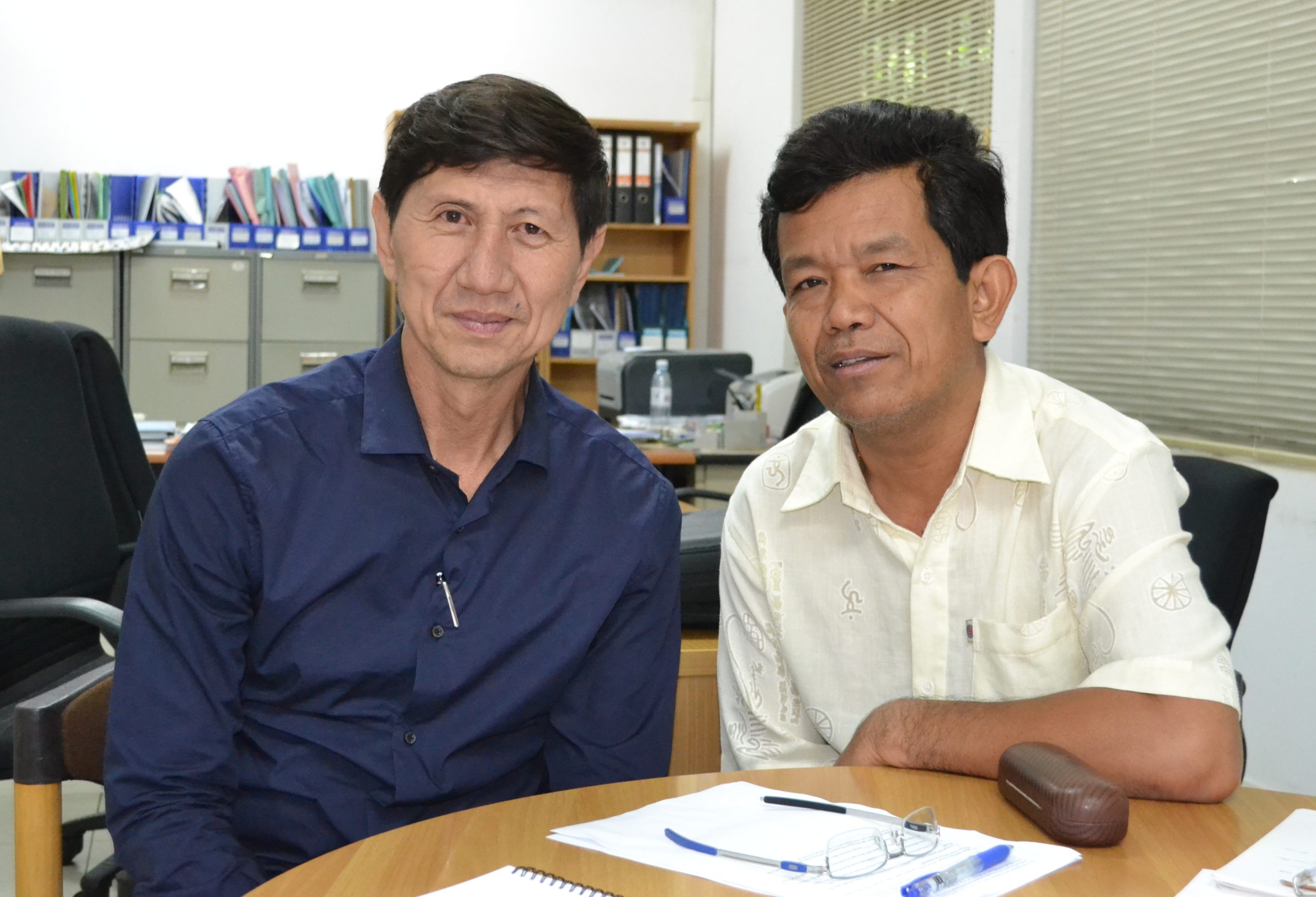
By Robin Narciso, Oxfam Australia
Oxfam Australia, WWF and the Danish Government Aid Agency (Danida) have been collaborating with Cambodia’s Inland Fisheries Research and Development Institute (IFReDI) to produce and provide the Cambodian Government with scientific information regarding the possible impacts of the dams on the Cambodian people.
Recently, IFReDI, which is a Cambodian governmental institute, published a policy brief containing critical information about the devastating effects of the dams. And so we decided to interview the person who is managing this project, Mr Chheng Phen, the acting director of IFReDI. Here’s what he told us.
Let’s start with the results of your research. What is it showing? And what is the relevance of this information?
Our research focused on how much fish contributes to Cambodian population’s nutrition and how the construction of dams might impact this. The result is that 89% of the population reaches their required daily intake of nutrition thanks to the contribution of fish.
If, for example, the Sesan 2 Dam is built, we would lose 9% of fish in the Mekong. The impact would be particularly serious for pregnant women and children, who typically need more fish to reach their ideal nutritional quota.
I think our work is very important as it scientifically and impartially gives us an idea of what could be the impact of the dams. This information can be used by policy makers to be better informed regarding the hydropower projects.
But why would this document and the whole project matter for policy makers? Isn’t the government one of the supporter of hydropower?
Yes, the government is in favor of hydropower but I believe there is a sincere interest in understanding what the effects on the Cambodian people are. It’s a sensitive issue, especially before the election, but since our institute is part of the Ministry of Fisheries, the government will consider our results before moving on with the project. A private company can’t present its Environmental Impact Assessment for the hydropower projects without including our study as well. I will personally make sure that the government takes into consideration our results.
What is your position on hydropower?
I’m not against hydropower but we need to take into consideration all the effects that the dams would have before implementing a project. We need to consider what the costs and the benefits are for Cambodian people and what will happen to future generations if the dams are built.
What do we need to do to ensure that IFReDI’s work will have an impact on the Government and on Cambodian people?
It’s going to be a long process that involves a broad range of stakeholders. Until now, we have worked at a local level with the communities, and at a national level with policy makers. At the current stage, all the relevant ministries need to be aware of the results of our study and endorse it.
The media is also important, as it has the role of spreading the information to the general public. And that is why our dissemination strategy targets newspapers, radio and TV to inform the public.
Oxfam Australia, Danida and WWF all supported IFReDI’s work. How effectively and efficiently have our resources been used? Were there any challenges?
Although our planning was very accurate, we did have some challenges. The biggest challenges we had were caused by unpredictable events, such as the flooding of the Mekong, and the death of King Norodom. The flooding delayed our work for one month because we couldn’t access and work with the communities along the river. And when the King died, the government proclaimed a period of public mourning and closed all public offices.
Our project took longer than expected also because we are dealing with a politically sensitive issue. Besides the delay, I think the results of our study are very good and the project is proceeding well.
What can we do to improve this project? And what are we doing well?
We need to have longer deadlines to take into consideration unpredictable factors. We should be particularly aware of political events as they could slow down our project. This time the elections made the publication of the report a difficult task. Government officials were worried about their decisions about it since hydropower is a sensitive matter. But then the Minister of Fisheries suddenly gave his permission and we published it.
The collaboration within our working team went very well. The idea of having donors’ members (such as Oxfam, Danida, WWF) included in our Technical Advisory Group was excellent and made our work faster and more flexible. It wasn’t a typical donor-partner relationship, but one between colleagues working towards the same objective. We probably wouldn’t have been able to extend our deadlines so much if donors weren’t directly involved in the project and trusted us.
This project was supported by AusAID, an Australian Government agency.